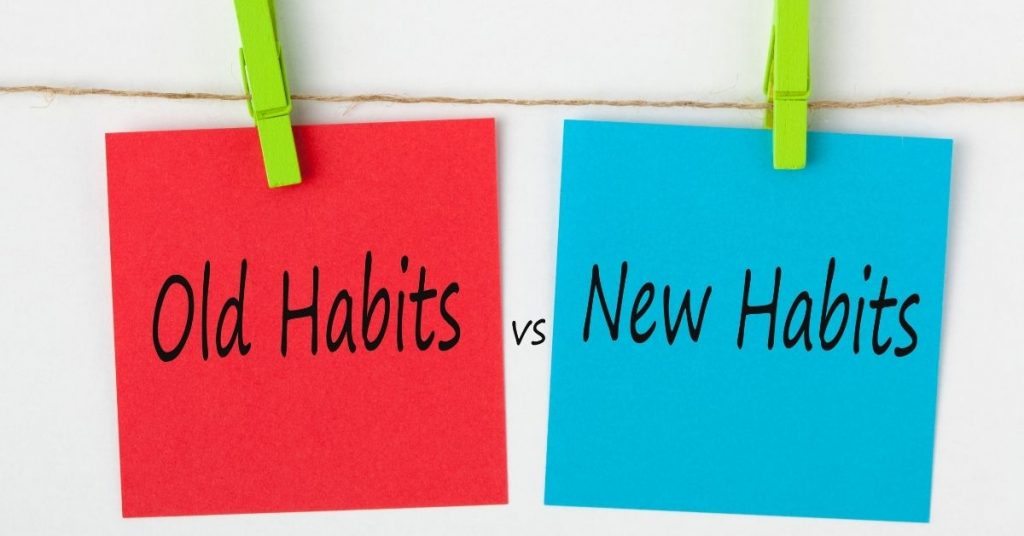Listen to this episode of the Focus with Marlene Podcast:
Get caught up with all episodes in the Moving Beyond Survival series.
Habits affect every aspect of our lives; from the moment we get up in the morning to the time we go to bed. We usually think of habits as our daily routines, so we don’t think much about them.
But our habits involve much more than our usual routines.
How you think, perceive, and respond to the world become habits.
Consider your typical responses.
- Is your first reaction to anything that’s contrary to your view irritation, or anger?
- Do you find yourself constantly defiant or defensive?
- Do you see the world as pessimistic or negative, with no redeeming qualities (this outlook can result in ongoing anxiety and fear).
- Are there few moments of enjoyment or pleasure?
When our typical way of responding becomes consistent over time, it becomes a habit. Yet, our responses are so automatic that we don’t think of them as habits.
Recognizing that habits affect every segment of our lives, we can understand the need to evaluate them.
Which have we consciously chosen, and which have become reactionary habits (our typical way of responding without thinking)?
How to create beneficial habits
To create beneficial habits requires first identifying the ones that aren’t helping.
- Which habits are time wasters, such as items you put off for tomorrow when you could quickly and easily accomplish the task now?
- What habits of interaction with others create ongoing conflict?
- How often do you find yourself feeling defensive or argumentative?
- Can you respect the differences of others while respecting your own?
- How did you end up with these habits in the first place?
When suffering setbacks or losses, we often begin to doubt ourselves and our ability to make worthwhile decisions. In exploring our habits, we can remind ourselves that habits can be changed.
If there is an ongoing pattern of making bad decisions or diminishing your worth, the first habit change is to accept yourself unconditionally.
Acknowledge and accept both the positive and negative sides of who you are. We are not perfect and never will be. No one is. We are constantly transforming and becoming. Without acceptance you will not feel you can make the changes you want.
In last week’s blog post, 7 Things You Need to Know About Habits, I asked you to divide a sheet of paper into three sections: morning, afternoon, and evening. Every day for a week, write what you normally do during those time periods. This helps you identify current habits. Expand on that by including specific times of day.
Review your results.
- How satisfied are you overall about how you spend your time each day?
- How and when did you use your time effectively?
- What intervals could your time been used more constructively?
- What was left undone that you wish had been completed that day and how did it affect the following day(s)?
- What role does procrastination play in your life? Were things left undone because you didn’t feel like doing them in the moment, or because you felt it was too much to do?
Replacing bad habits
To replace bad habits, we need to identify them and pinpoint how and why they first got started. When we can separate favorable habits from those that are unfavorable, we find ourselves energized to make changes.
Recognizing non-productive habits and how they impede or interfere with your progress is the first step. You get a broader picture of how going beyond survival can be a positive and productive time in your life.
You determine where you want to go. You are in charge of your habits. Pray about it. Ask God for wisdom and courage to recognize and make appropriate changes. We can’t do it by ourselves.
Remember that habits are formed by repeating behaviors over and over. We change by replacing the cue and the process.
As you begin taking those tiny steps forward you will be rewarded with a new confidence and belief in yourself.
Believing in yourself does not mean you won’t make mistakes. It doesn’t mean you don’t need the help and support of others. Reaching out to others is essential. We need the support of friends who are accepting and caring.
We learn that humility isn’t diminishing. It takes courage to accept that we are not perfect, never will be, and yet, we can move forward anyway.


